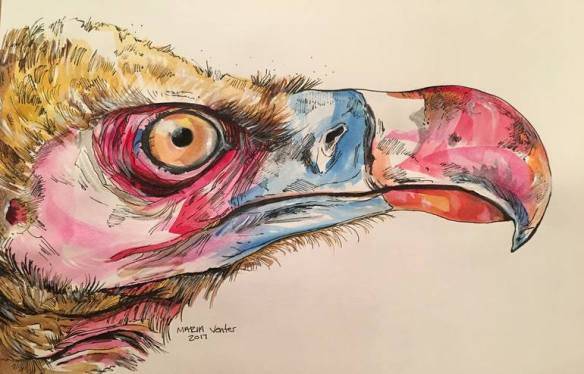for we walk by faith, not by sight . . .[1]
It is certain that man must utterly despair of his own ability before he is prepared to receive the grace of Christ. That person does not deserve to be called a theologian who looks upon the »invisible« things of God as though they were clearly »perceptible in those things which have actually happened« (Rom. 1:20; cf. 1 Cor 1:21-25), he deserves to be called a theologian, however, who comprehends the visible and manifest things of God seen through suffering and the cross. A theology of glory calls evil good and good evil. A theology of the cross calls the thing what it actually is. That wisdom which sees the invisible things of God in works as perceived by man is completely puffed up, blinded, and hardened.[2]
Above we have both the Holy Spirit/Apostle Paul and Martin Luther underscoring the same thing. That is, the Christian, in the far country of this world, in this in-between time, doesn’t see, doesn’t endure, doesn’t know, lest it be by seeing the things that are unseen; the things re-created in the blood drenched soil of the cross of Jesus Christ. It is when the seed falls into the ground and dies that new life, a new creation comes into existence. The vision the Christian operates from comes from this new order of the apocalyptic and disruptive reality of God become man in Jesus Christ. The profane has no quarter here. This seems radical, foolish and weak even, but indeed, it is the via crucis. When daily life, even at its deepest possible reality, is understood as the measure and boundary of what and who can be known, all that we end up with is a superficial and immanentist knowledge of things. But the reality of the world, as Barth says, the reality of the external world (i.e., creation) is the inner life of the covenant bonded between God and humanity in the hypostatic union of God the Son with humanity in the visceral and concrete humanity of the man from Nazareth, Jesus Christ. The Christian reads reality from this type of unio mystica (‘mystical union’), which indeed is not of this world, even while being fully and freely for it.
If the Christian misses this most basic insight, then they will be well on their way to living a highly disillusioned life as a Christian. They will attempt to force things into place that are impossible to force, simply because the ultimate ground of reality is in fact a Miracle. And yet, this isn’t an abstract ethereal thing; i.e., as has already been noted, it is grounded in the concrete of God’s life for the world in the flesh and blood humanity of Jesus Christ. This ought to lead the knower into the realization that they sit in a vulnerable place, as if a newborn babe thrown to the side of the road in its mother’s afterbirth, waiting either to be eaten alive by the circling vultures, or instead, to be picked up, dressed in swaddling cloths, put to rest in the manger, and finally ascended to the right hand of the Father. It is indeed this radical. The vultures have no quarter in the kingdom of God.
[1] Holy Spirit and the Apostle Paul, II Corinthians 5.7 (Macedonia: GNT, 55/56 AD).
[2] Martin Luther, Heidelberg Disputation 1518.

